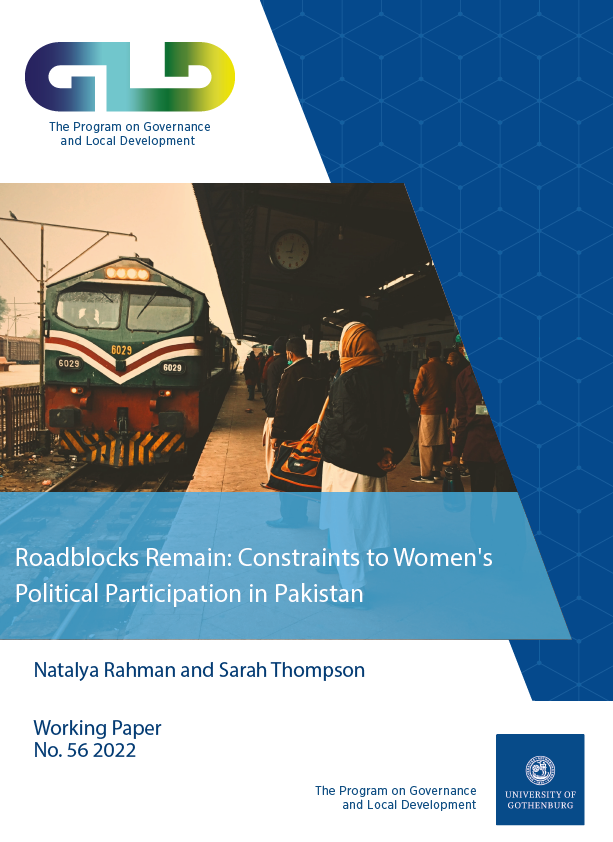No.56 Roadblocks Remain: Constrains to Women's Political Participation in Pakistan
Natalya Rahman and Sarah Thompson
Abstract
How can governments encourage political participation by all? In this study, the authors ask why certain groups are less likely to vote solely based on where they are assigned to vote and argue that mobility plays an important role. They focus on Pakistan, the world’s sixth-most populous country. Despite instituting reforms like single-gender polling stations, Pakistan is among the lowest-ranked countries for women’s political participation. This paper uses 2018 polling station data to show that mixed-gender polling stations increase women’s turnout. The authors also present descriptive findings to show that chance assignments to certain polling stations make women, but not men, more likely to turn out. They then use a survey experiment to test one possible explanation—mobility. Constraints to mobility have been shown to negatively impact women’s educational and labor force choices, but their impact on women’s political participation has not been directly tested. The paper finds that when women’s mobility is constrained by a lack of male accompaniment or they expect to travel along a predominantly male route, their likelihood to turn out decreases. It also find that women are more likely to vote in areas familiar to them (i.e., primary schools where they drop their children and girls’ schools they attended). The study implies that strategies to increase women’s political participation in developing democracies should take the role of women’s mobility seriously.
